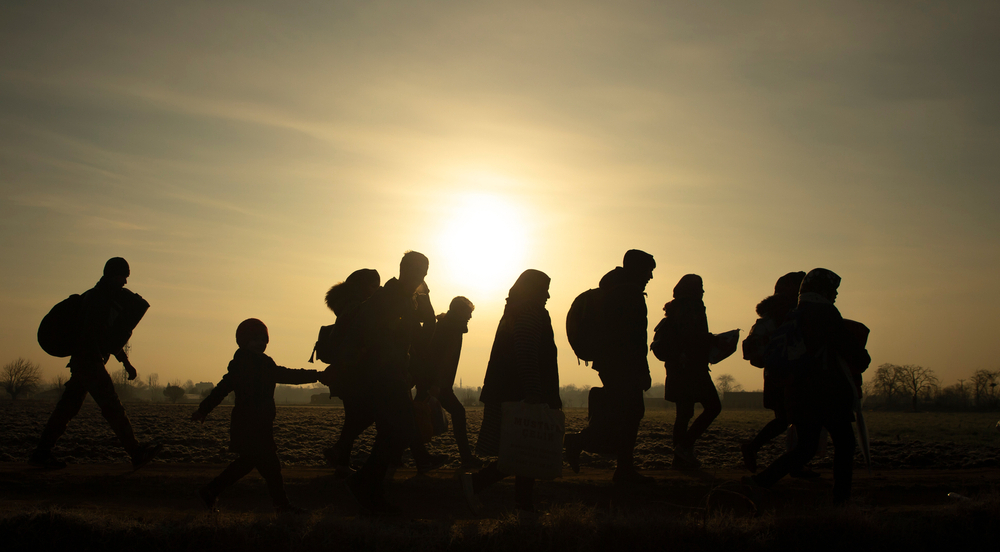Should I Make Hijra From a Secular Country?
Answered by Shaykh Irshaad Sedick
Question
I reside in a highly secular country where Muslims face significant oppression from the government. I am earnestly considering hijra, but due to my young age and my mother’s divorce, coupled with financial constraints, I find myself in a challenging situation. What steps can I take? Furthermore, how should I navigate the situation if the wearing of an abaya and hijab is prohibited at school? Kindly keep the Muslims here in your prayers.
Answer
In the Name of Allah, the Most Merciful and Compassionate.
May Allah guide every dimension of our lives to that which pleases Him.
Dear brother/sister in Islam, I empathize with the challenges you are facing in a country where practicing Islam may be difficult. It is indeed a test from Allah, and I ask Him to grant you and all our brothers and sisters facing such circumstances patience, strength, and guidance.
First and foremost, it is important to seek solutions within the boundaries of Islam and the laws of the land. While hijra (migration) is a concept in Islam, it is not always the immediate or only solution to difficulties. In your case especially, without the authority or the means to undertake a complete relocation, it would be wiser to pursue an alternative course of action, and Allah knows best.
Please consult this related answer.
Seek Knowledge
Knowledge is a powerful tool. Learn more about your rights as a Muslim in your country and explore avenues to express and practice your faith peacefully. Engage with local Islamic scholars or organizations to understand the legal aspects of practicing Islam, especially within your context.
Community Support
Build a supportive community of fellow Muslims who may be facing similar challenges. Strength often lies in unity; collective efforts can lead to positive changes. Attend local Islamic gatherings and events to connect with like-minded individuals.
Dialogue and Understanding
Engage in open and respectful dialogue with teachers, school administrators, and government officials. Help them understand the importance of religious freedom and accommodation for diverse cultural and religious practices. If you can’t persuade them to change their rules, perhaps find alternative options with different rules. The world is an ever-changing abode of trials, and we must do our best to deal with them in a manner that would please Allah.
Legal Assistance
Seek legal advice to understand your rights as a Muslim, especially regarding religious attire. There may be legal avenues to challenge unjust policies. Reach out to organizations specializing in defending religious freedoms, and always supplicate to Allah for assistance.
Educate Others
Foster understanding of Islam and dispel misconceptions. Sometimes, the root of discrimination lies in ignorance. Be a positive representative of your faith by showcasing the beauty and tolerance within Islam.
Dua (Supplication)
Turn to Allah with sincere and heartfelt supplications. Ask Him for guidance, strength, and relief from your difficulties. Allah is the Turner of hearts. Through prayer, one can find solace and solutions to challenges.
It is important to remember that Allah tests those whom He loves, and facing these challenges may be a means of purification and elevation in the Hereafter. I pray that Allah grants you ease, opens doors for you, and alleviates the difficulties Muslims face in your country and worldwide.
May Allah guide us all and grant us the strength to persevere through trials. Ameen.
I pray this is of benefit and that Allah guides us all.
[Shaykh] Irshaad Sedick
Checked and Approved by Shaykh Faraz Rabbani
Shaykh Irshaad Sedick was raised in South Africa in a traditional Muslim family. He graduated from Dar al-Ulum al-Arabiyyah al-Islamiyyah in Strand, Western Cape, under the guidance of the late world-renowned scholar Shaykh Taha Karaan.
Shaykh Irshaad received Ijaza from many luminaries of the Islamic world, including Shaykh Taha Karaan, Mawlana Yusuf Karaan, and Mawlana Abdul Hafeez Makki, among others.
He is the author of the text “The Musnad of Ahmad ibn Hanbal: A Hujjah or not?” He has served as the Director of the Discover Islam Centre and Al Jeem Foundation. For the last five years till present, he has served as the Khatib of Masjid Ar-Rashideen, Mowbray, Cape Town.
Shaykh Irshaad has thirteen years of teaching experience at some of the leading Islamic institutes in Cape Town). He is currently building an Islamic online learning and media platform called ‘Isnad Academy’ and has completed his Master’s degree in the study of Islam at the University of Johannesburg. He has a keen interest in healthy living and fitness.
